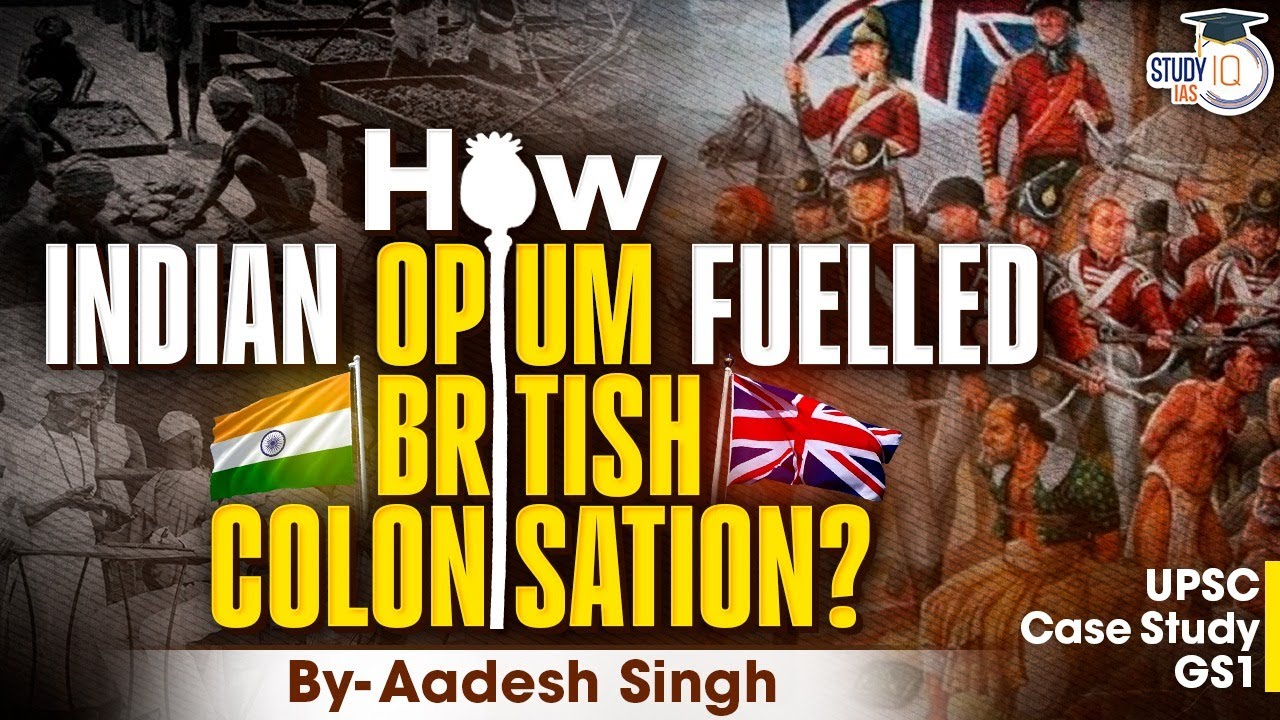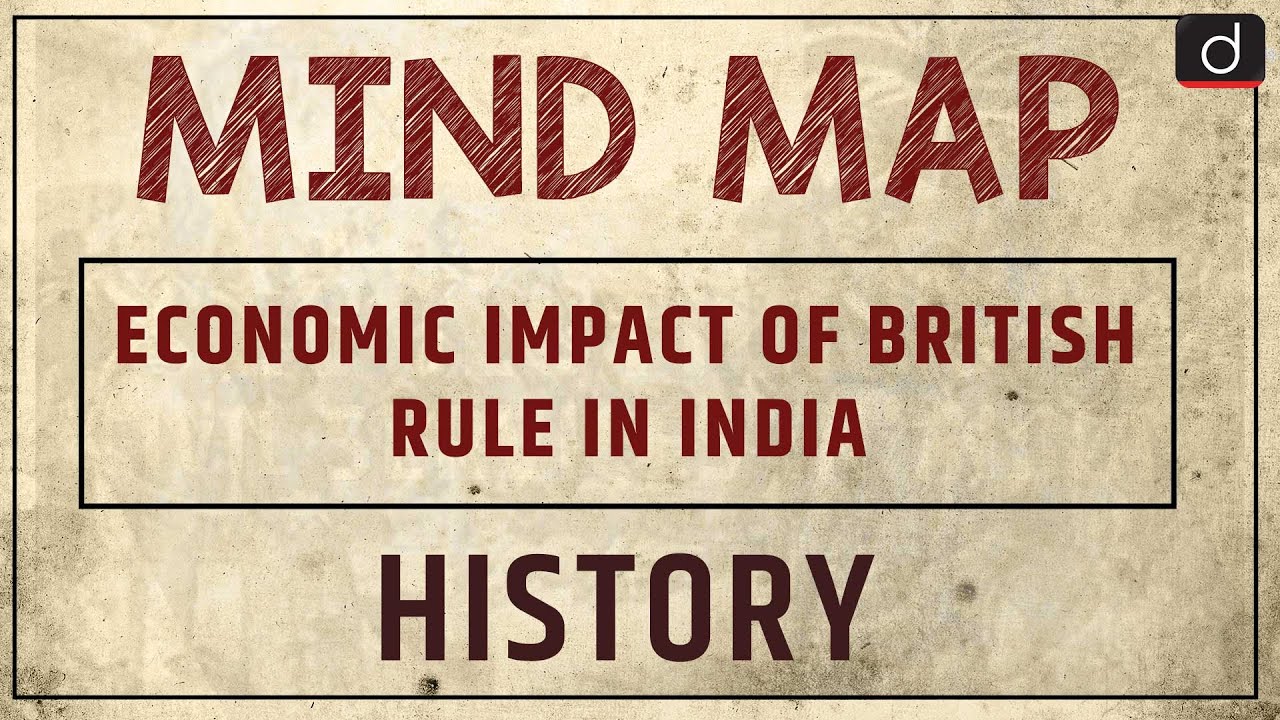People who shape our world.
Summary
TLDRIn this compelling speech, the speaker critiques the harmful impact of British colonialism, particularly in India, where British exploitation led to significant economic decline. They highlight India's industrial devaluation, the destruction of local industries, and the diversion of resources during famines, such as the Bengal famine. The speaker also discusses the role of British elites in benefiting from slavery and colonial plunder. Through powerful examples, the speech challenges the myth of enlightened colonialism, emphasizing violence, racism, and oppression as the realities of the British Empire's rule.
Takeaways
- 😀 The speaker humorously compares themselves to Henry VIII's last wife, acknowledging the audience's likely fatigue from a long event.
- 😀 The speaker critiques Sir Richard Awfully's suggestion that British colonialism might not have worsened the economic situation of the colonies.
- 😀 The economic impact on India during British rule is highlighted: India's share of the world economy plummeted from 23% to under 4%.
- 😀 British colonialism is criticized for deindustrializing India, particularly the destruction of the handloom industry and the imposition of tariffs.
- 😀 The speaker explains that Britain's Industrial Revolution was partially built on exploiting India, taking raw materials and flooding global markets with British-manufactured goods.
- 😀 India, once a world-renowned exporter of cloth, became an importer under British rule, and its share of world trade drastically shrank.
- 😀 British colonialists like Robert Clive enriched themselves by looting India, while the British referred to Clive as 'Clive of India,' despite his role in plundering the nation.
- 😀 The speaker critiques British hypocrisy, noting that British wealth, including in the 19th century elite, was built on slavery and the exploitation of African labor.
- 😀 Following the abolition of slavery, Britain paid compensation to slave owners, not the victims, showing a disregard for the suffering caused by slavery.
- 😀 The speaker draws attention to Winston Churchill’s role in causing the Bengal Famine during WWII, in which millions died due to British policies that prioritized European supplies over the needs of Indians.
- 😀 Churchill's dismissive attitude toward the suffering in Bengal, evidenced by his remark that Gandhi should be dead, demonstrates the cruelty of British colonialism.
- 😀 The speaker dismisses the myth that British colonialism was a form of enlightened despotism, emphasizing that violence and racism were the realities of the colonial experience.
Q & A
What was the economic impact of British colonialism on India, according to the speaker?
-The speaker argues that British colonialism significantly worsened India's economy. When the British arrived, India accounted for 23% of the world economy, but by the time the British left, it had dropped to below 4%. The exploitation of resources and the destruction of local industries, like textiles, contributed to this decline.
How did British colonial policies affect India's textile industry?
-British colonial policies directly impacted India's once-thriving textile industry. The British imposed tariffs and duties on Indian cloth, destroyed local weaving industries by smashing looms, and took raw materials from India to manufacture cloth in Britain, which flooded global markets.
What role did Robert Clive play in British colonialism in India?
-Robert Clive is depicted as an example of British colonialists who enriched themselves through the exploitation of India. He bought political power in Britain using the wealth he accumulated from looting India, and his actions contributed to the extraction of wealth from the country.
How does the speaker describe the role of British officials in the Indian famines?
-The speaker mentions that British officials, including Winston Churchill, played a direct role in exacerbating famines in India. Churchill, in particular, diverted food supplies from Bengal to European stockpiles during World War II, leading to millions of deaths, particularly during the 1943 Bengal famine.
What was Winston Churchill’s stance on the Bengal famine according to the speaker?
-The speaker quotes Churchill’s indifference to the Bengal famine, citing his remark that the starvation of underfed Bengalis mattered less than that of Greeks, and noting his callous response to British officials who raised concerns about the death toll.
What did the speaker mean by 'India was Britain's biggest cash cow'?
-The speaker emphasizes that India was a major source of wealth for Britain. India not only served as a significant market for British goods but also provided cheap labor for the British Empire, which benefitted from the economic exploitation of Indian resources and people.
How does the speaker refute the idea that British colonialism was a form of 'enlightened despotism'?
-The speaker rejects the notion that British colonialism was a benevolent enterprise aimed at 'civilizing' the colonies. They argue that violence, racism, and exploitation were the true characteristics of British colonial rule, citing specific examples of economic damage and brutality.
What role did slavery play in Britain's economic success, according to the speaker?
-The speaker points out that one-fifth of the wealthy British elite in the 19th century owed their fortunes to the slave trade, which involved transporting millions of Africans. The wealth accumulated from this practice helped fuel Britain’s economic dominance during the colonial period.
What was the compensation provided when slavery was abolished in 1833?
-When slavery was abolished in 1833, Britain paid £20 million in compensation not to the enslaved people, but to the slave owners who had lost their 'property.' This highlights the prioritization of economic interests over the well-being of those who suffered under slavery.
What does the speaker mean when they say, 'The sun never set on the British Empire because even God couldn’t trust the English in the dark'?
-This rhetorical statement is used to emphasize the extent of British colonial reach, suggesting that the British Empire was so vast that the sun was always shining on it. The latter part, 'even God couldn’t trust the English in the dark,' implies that the British were so morally corrupt that they couldn’t be trusted even in the absence of light.
Outlines

This section is available to paid users only. Please upgrade to access this part.
Upgrade NowMindmap

This section is available to paid users only. Please upgrade to access this part.
Upgrade NowKeywords

This section is available to paid users only. Please upgrade to access this part.
Upgrade NowHighlights

This section is available to paid users only. Please upgrade to access this part.
Upgrade NowTranscripts

This section is available to paid users only. Please upgrade to access this part.
Upgrade NowBrowse More Related Video

Dr Shashi Tharoor MP - Britain Does Owe Reparations

ENGLISH SPEECH | SHASHI THAROOR: Britain owes reparations to India (English Subtitles)

How Indian Opium Shaped British Colonial Expansion Across the World | UPSC Mains GS 1

INDIAN INDUSTRIAL REVOLUTION किसके वजह से हो पाया? | Industrial Revolution in India

Economic Impact of British Rule in India - MIND MAP | Drishti IAS English

Ang Kolonyalismo at Imperyalismong Kanluranin sa Pangkapuluang Timog Silangang Asya Q2 W3-4 (Part2)
5.0 / 5 (0 votes)